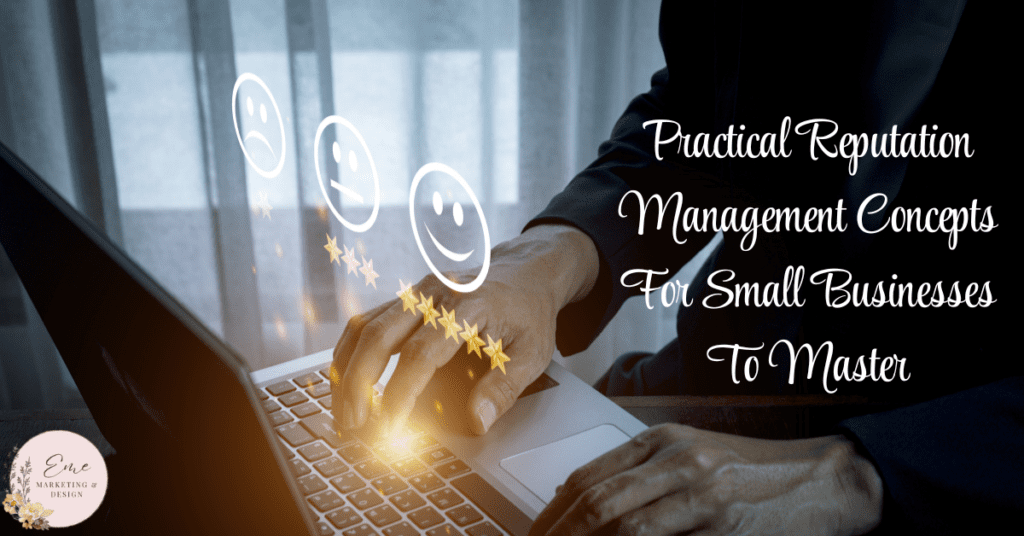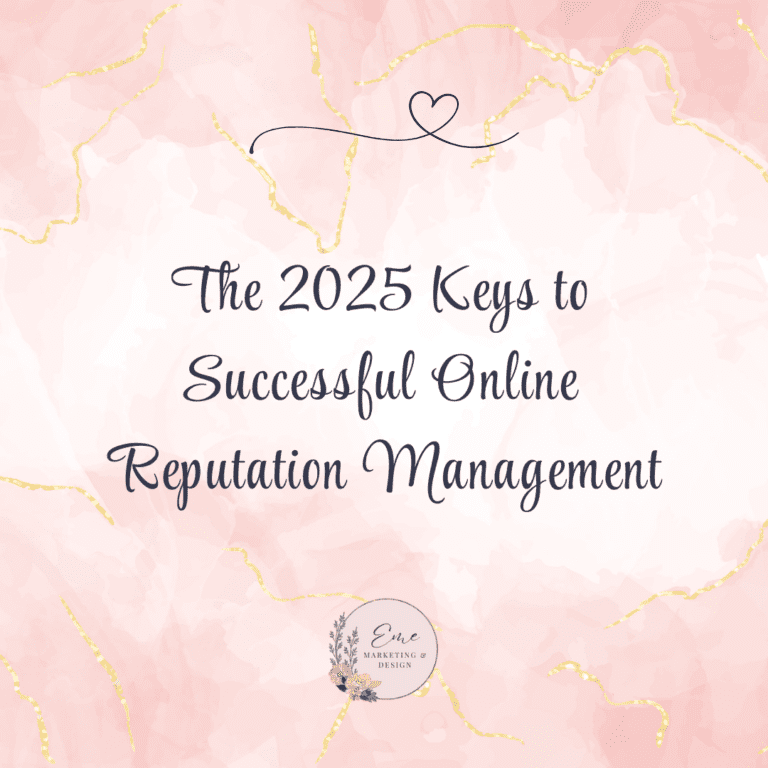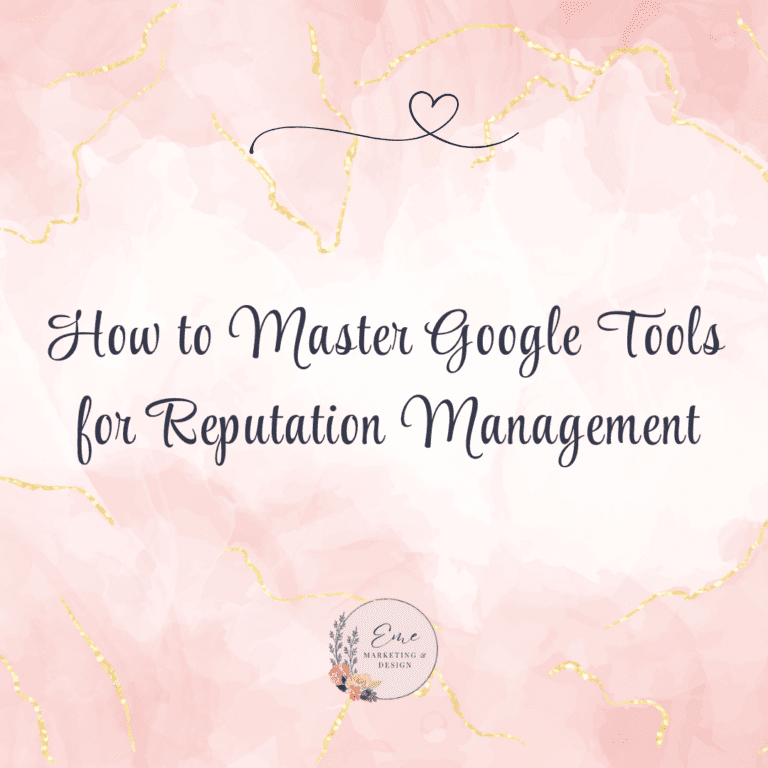
In the boundless expanse of the internet, where information flows freely and opinions are formed in the blink of an eye, one’s online reputation emerges as a guiding beacon amidst the tumultuous waves of digital discourse. In the virtual realm, reputations are not merely reflections of past actions but dynamic entities shaped by every keystroke, click, and interaction. Welcome to the world of reputation management, where the art of controlling and influencing perceptions online reigns supreme.
In today’s interconnected society, where individuals and businesses are perpetually under the scrutiny of a global audience, the significance of reputation management cannot be overstated. Your reputation serves as the cornerstone of trust and credibility, influencing the decisions of customers, partners, and even employers. As we embark on this journey through the intricacies of reputation management, we delve into the strategies, challenges, and ethical considerations that define this indispensable practice in the digital age.
What is Reputation Management?
At its core, reputation management encapsulates one’s digital persona’s strategic orchestration, encompassing proactive and reactive measures to shape how individuals, brands, or organizations are perceived online. It transcends mere damage control or reactive responses to negative feedback, extending into a realm where every online interaction contributes to the ongoing reputation narrative. Essentially, it’s the art of curating an online identity that aligns with desired perceptions and values, navigating the digital landscape with finesse and intentionality.
In the modern era, where the lines between physical and digital realities blur, reputation management is a digital guardian, safeguarding against the unpredictable tides of public opinion. It entails vigilant monitoring of online mentions, conversations, and sentiment analysis, offering a panoramic view of how one is perceived across various digital platforms. From social media channels to review websites, an individual or entity’s digital footprint shapes public perception, making proactive monitoring an indispensable aspect of reputation management.
Moreover, reputation management encompasses a proactive approach to shaping narratives and fostering positive interactions within digital spheres. It involves crafting compelling content that showcases expertise, values, and authenticity, strategically optimizing it for search engines to influence search results. By actively engaging with audiences, responding to feedback, and fostering meaningful connections, reputation management transcends the realm of crisis aversion, transforming into a proactive endeavor to build trust, credibility, and goodwill in the digital realm.
Why Reputation Management Matters
In the interconnected web of the digital age, reputation serves as a currency of trust, influencing decisions ranging from consumer purchases to professional partnerships. A robust reputation management strategy is not merely a luxury but a necessity for individuals and businesses, directly impacting credibility, authority and success. In an era where information travels at the speed of light, a single negative review or viral social media post can have far-reaching consequences, underscoring the critical importance of actively managing one’s online presence.
Moreover, reputation management extends beyond mere self-preservation; it’s a proactive investment in building strong relationships with stakeholders and fostering a positive brand image. Organizations can cultivate a loyal following and differentiate themselves in crowded digital spaces by consistently delivering value, engaging authentically with audiences and demonstrating integrity in all interactions. In essence, reputation management serves as a cornerstone of brand identity, shaping how their audiences perceive and remember individuals and businesses.
Furthermore, reputation management significantly influences professional opportunities and career trajectories in today’s interconnected world. Employers and recruiters increasingly rely on online platforms to vet potential candidates, with studies indicating that an individual’s digital footprint influences a significant portion of hiring decisions. Therefore, maintaining a pristine online reputation isn’t just about vanity; it’s a strategic imperative for individuals seeking to advance their careers and unlock new opportunities in an increasingly competitive job market.
The Digital Landscape: Challenges and Opportunities
In the sprawling expanse of the digital landscape, individuals and organizations navigate a terrain fraught with challenges and opportunities. One of the foremost challenges lies in the accessibility and democratization of online platforms, where virtually anyone can contribute content and shape narratives. This democratization, while empowering in many respects, also poses risks, as misinformation, negative reviews, and malicious attacks can quickly proliferate, casting shadows over reputations and credibility. Thus, maintaining vigilance and employing sophisticated monitoring tools are essential strategies for mitigating the risks posed by the open nature of the digital realm.
Furthermore, the speed at which information spreads in the digital age presents both a challenge and an opportunity for reputation management. On one hand, the rapid dissemination of content means that reputational damage can occur in the blink of an eye, requiring swift and decisive action to mitigate its impact. On the other hand, the same speed can be leveraged to amplify positive stories, respond to crises in real-time, and engage with audiences on a deeper level. By harnessing the power of social media and digital platforms, organizations can transform crises into opportunities for transparency, authenticity, and relationship-building, strengthening their reputations in the long run.
Moreover, the global reach of the digital landscape transcends geographical boundaries, presenting unprecedented opportunities for individuals and businesses to expand their influence and reach new audiences. However, this global connectivity also means that reputations are scrutinized worldwide, with cultural nuances and sensitivities shaping perceptions in diverse ways. Navigating this cultural complexity requires sensitivity, empathy, and a deep understanding of local contexts, as missteps in one region can reverberate across continents. Thus, while the digital landscape offers boundless opportunities for growth and expansion, it also demands a nuanced approach to reputation management that respects cultural diversity and fosters inclusive dialogue across borders.
Key Strategies for Effective Reputation Management
Proactive Monitoring
Proactive monitoring is the cornerstone of effective reputation management, enabling individuals and organizations to stay ahead of potential issues and trends in the digital landscape. Utilizing advanced monitoring tools such as social media listening platforms and online sentiment analysis software, proactive monitoring involves tracking mentions, conversations, and trends related to one’s brand or persona. By gaining real-time insights into public perceptions and emerging issues, proactive monitoring empowers stakeholders to identify opportunities for engagement, address concerns promptly, and shape narratives proactively.
Additionally, setting up Google Alerts and monitoring review websites allows for comprehensive oversight of online mentions and reviews. Another crucial aspect of proactive monitoring is regularly auditing search engine results pages (SERPs) to ensure that they accurately reflect desired perceptions and values. By staying vigilant and responsive to online chatter, individuals and organizations can maintain control over their digital reputations and mitigate potential crises before they escalate.
Engagement and Interaction
Meaningful engagement and interaction with online audiences are fundamental to building trust, fostering loyalty, and enhancing reputations. Responding promptly and thoughtfully to customer feedback, inquiries, and reviews demonstrates a commitment to customer satisfaction and transparency. Whether addressing positive comments with gratitude or handling negative feedback with empathy and solutions-oriented responses, every interaction shapes perceptions and influences brand sentiment.
Moreover, proactive engagement extends beyond reactive responses to encompass proactive initiatives to foster community and dialogue. Encouraging user-generated content, hosting online events or webinars, and soliciting feedback through surveys or polls are effective strategies for fostering meaningful interactions with audiences. Individuals and organizations can humanize their brands, strengthen relationships, and cultivate brand advocates who champion their cause by actively engaging with stakeholders.
Content Creation and Optimization
Strategic content creation and optimization play pivotal roles in shaping online reputations and influencing search engine results. Publishing high-quality content that showcases expertise, thought leadership, and authenticity enhances credibility and helps control the narrative surrounding one’s brand or persona. Leveraging search engine optimization (SEO) techniques such as keyword research, on-page optimization, and link building ensures that content ranks prominently in search engine results, thereby shaping online perceptions and directing traffic to desired channels.
Furthermore, leveraging social media platforms to distribute content, engage with audiences, and amplify positive stories is essential for maximizing reach and impact. By creating a diverse mix of content formats, including articles, videos, infographics, and podcasts, individuals and organizations can cater to diverse audience preferences and maintain audience engagement. Consistency in content creation and a keen understanding of audience demographics and preferences enable stakeholders to establish themselves as authoritative voices within their respective industries and foster positive associations with their brands or personas.
Building solid relationships forms the bedrock of effective reputation management, transcending transactional interactions to foster genuine connections with stakeholders. Central to relationship-building is cultivating trust through transparent communication, consistent delivery of value, and a genuine commitment to customer satisfaction. Individuals and organizations demonstrate their dedication to fostering mutually beneficial relationships grounded in trust and transparency by actively listening to customer feedback, addressing concerns promptly, and implementing feedback-driven improvements.
Moreover, collaboration with influencers, industry leaders, and like-minded organizations presents opportunities to amplify reach, enhance credibility, and tap into new audiences. By strategically partnering with influential figures who align with their values and objectives, individuals and organizations can leverage existing networks and tap into established communities to amplify their message and broaden their impact. Furthermore, participating in industry events, conferences, and community initiatives allows stakeholders to develop themselves as active contributors to their respective fields, fostering goodwill and strengthening relationships with peers, partners and stakeholders alike.
Crisis Management
Crisis management is critical to reputation management, requiring swift and decisive action to mitigate reputational damage during adversity. Central to effective crisis management is developing a comprehensive crisis communication plan that outlines roles, responsibilities, and communication protocols in the event of a crisis. This plan should include clear escalation procedures, designated spokespersons, and predefined messaging strategies to ensure a coordinated and consistent response to crises.
Furthermore, transparency and honesty are paramount in crisis communication, as withholding information or attempting to deflect blame can exacerbate the situation and erode trust. By promptly acknowledging the issue, taking responsibility for any shortcomings, and communicating transparently with stakeholders, individuals and organizations can demonstrate integrity and commitment to resolving the crisis. Additionally, leveraging digital platforms to disseminate timely updates, address concerns, and provide reassurance can help to regain control of the narrative and mitigate reputational damage amidst crises.
Ethical Considerations
In reputation management, ethical considerations are guiding principles that shape interactions, decisions, and strategies. One of the primary ethical considerations revolves around the balance between transparency and privacy. While transparency fosters trust and authenticity, individuals and organizations must respect individuals’ privacy rights and refrain from disclosing sensitive information without consent. Upholding the principles of transparency and privacy requires a delicate balancing act, where openness and honesty are paramount, but boundaries are respected to safeguard personal and confidential information.
Moreover, maintaining integrity and authenticity in online interactions is essential to ethical reputation management. This entails refraining from deceptive practices such as purchasing fake reviews or artificially inflating social media metrics to manipulate perceptions. Individuals and organizations can cultivate long-term trust, credibility, and goodwill in the digital realm by upholding ethical standards and fostering genuine connections with audiences. Additionally, advocating for transparency, accountability, and responsible digital citizenship contributes to a more ethical and sustainable online ecosystem where reputations are built on honesty, integrity and moral conduct.
In the dynamic and ever-evolving landscape of the digital age, reputation management emerges as a cornerstone of success, wielding significant influence over individual and organizational outcomes. As we navigate the vast expanse of the digital realm, it becomes increasingly evident that reputations are not merely reflections but actively curated narratives shaped by every online interaction and engagement. By prioritizing reputation management as a strategic imperative, individuals and organizations can confidently navigate the digital seas, leveraging proactive monitoring, meaningful engagement, and ethical considerations to steer their reputational course.
Reputation management is not just a reactive measure to crises but a proactive investment in building trust, credibility, and goodwill in the digital arena. As we chart our course forward, remember that our reputations are not static entities but dynamic reflections of our actions, values, and interactions in the digital sphere. By embracing transparency, authenticity, and ethical conduct, we can harness the power of reputation management to shape narratives, foster meaningful connections, and navigate the digital seas with integrity and purpose.
Next Steps: Partner with Eme Marketing & Design for Comprehensive Online Reputation Management Services
Ready to take control of your digital narrative and elevate your online reputation to new heights? Partner with Eme Marketing & Design, your trusted ally in reputation management. Our team of seasoned professionals specializes in crafting tailored strategies to bolster your online presence, build trust with your audience, and safeguard your reputation against unforeseen challenges.
With our holistic approach to online reputation management, you can rest assured that your brand will be in capable hands. From proactive monitoring and strategic engagement to crisis management and ethical considerations, we’ll work tirelessly to ensure that your digital footprint reflects the integrity, authenticity, and professionalism that define your brand.
Don’t let your reputation be left to chance in the vast digital landscape. Contact Eme Marketing & Design today to learn more about our comprehensive reputation management services and take the first step towards a more substantial, resilient online presence. Your reputation is your most valuable asset—let us help you protect and enhance it. Reach out now and discover how Eme Marketing & Design can empower your brand for success in the digital age.





